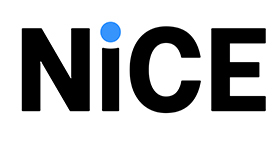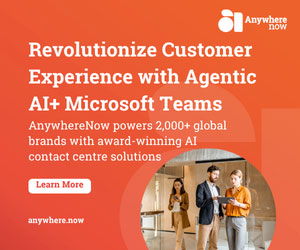Michele Carlson at NICE explores the data divide that separates companies into the thriving and the merely surviving.
The Deep Chasm
There is a deep chasm between the data-haves and the data-have-nots. Some companies can mine customer service data to refine their CX, while others drown in data that they do not use effectively.
For those brands that thrive by using data to provide the best customer service, they have seen incredible improvements to their CX metrics: three to five times annual increase in self-service containment rates, a 38% annual increase in customer satisfaction (CSAT), and 79% decrease in service costs, according to research from Omer Minkara, vice president & principal analyst at Aberdeen Research in a recent white paper.
How You Use Data Makes All the Difference
The true difference between these companies is not the amount of data—all organizations today are awash in data.
The difference is also not due to the number of digital channels that customers use—today at least 50% of companies employ at least NINE different digital channels for their CX.
The difference lies in the kind of data the successful companies collect, and how they use it.
The organizations that are merely surviving have many disadvantages working against them. The data they collect is not actionable, meaning it does not help the agent or self-service channels address customer issues.
They lack skilled employees to interpret and utilize the data, and they lack the right technologies to manage the data.
Lastly, they have a wealth of data collected from different channels that live in different systems, but it is too fragmented to interpret for unified insights.
How Successful Companies Do It
In contrast, what are the most successful companies doing to better help their customers? In short, it comes down to effectively using AI, machine learning, predictive analytics, and automation.
They take the data from their nine or more channels and use AI to intelligently analyze it— automatically. AI can identify customer intents more effectively than humans alone and can find the patterns across millions of interactions.
This data then fuels personalization, tailoring self-service journeys, updating self-service workflows, and informing centralized knowledge bases. As a result, operations become more efficient.
AI also reaps insights from the other end—from agent interactions. The AI models learn from top-performing agents and use these smart insights to build better bots, IVAs, proactive communications, and more. They replicate the agile moves of agents to create ever-more frictionless self-service.
Join the Right Side of the Data Divide
This may sound overwhelming to an organization who does not yet use AI. How can a company start on their journey in using AI to improve their CX, to be on the right side of the data divide?
They can start by using AI to find automation opportunities, using AI models built on billions of CX interactions to do just that and more.
Your business does not need to spend a lot of time building out your own algorithms to track and evaluate CX data. You can quickly identify automation opportunities to find the optimal flows, helping you build self-service from multiple different angles.
By kick-starting your self-service quest, you can create a continuous feedback loop. Not only will your self-service applications quickly learn directly from customers and top agents, but it also will continuously improve your digital channels with the latest customer intents and most efficient workflows.
The improvements to your self-service channels drive results that improve customer interactions on both digital and live agent channels.
Enlighten XO uses the top tools, led by AI, to understand customers’ intents, optimal workflows, and the top priority self-service opportunities that differentiate your self-service from the rest of the pack. Gone are the days of guesswork.
Now, use what customers are telling you on their voice interactions to bring your self-service to the promised land for rich data, savvy self-service, and digital that gets done right.
This blog post has been re-published by kind permission of NiCE-ltd – View the Original Article
For more information about NiCE-ltd - visit the NiCE-ltd Website
Call Centre Helper is not responsible for the content of these guest blog posts. The opinions expressed in this article are those of the author, and do not necessarily reflect those of Call Centre Helper.
Author: NiCE-ltd
Published On: 9th Dec 2022
Read more about - Guest Blogs, NiCE






 NiCE (NASDAQ: NICE) is transforming the world with AI that puts people first. Our purpose-built AI-powered platforms automate engagements into proactive, safe, intelligent actions, empowering individuals and organizations to innovate and act, from interaction to resolution. Trusted by organizations throughout 150+ countries worldwide, NiCE’s platforms are widely adopted across industries connecting people, systems, and workflows to work smarter at scale, elevating performance across the organization, delivering proven measurable outcomes.
NiCE (NASDAQ: NICE) is transforming the world with AI that puts people first. Our purpose-built AI-powered platforms automate engagements into proactive, safe, intelligent actions, empowering individuals and organizations to innovate and act, from interaction to resolution. Trusted by organizations throughout 150+ countries worldwide, NiCE’s platforms are widely adopted across industries connecting people, systems, and workflows to work smarter at scale, elevating performance across the organization, delivering proven measurable outcomes. 









